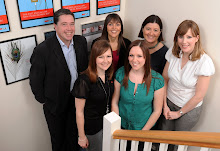Leading industry magazine PR Week recently asked the editors of some well-known magazines and newspapers “What are your PR pet peeves?” The answers were straight out of a text book:
“When they ring me up to chase their press release”, “When they have not done their homework about what sort of things we publish”, “generic press releases”, “ringing to see if I have got their press release”, “when they don’t take time to find out who our readers are”, “when they blatantly have never seen a copy of our magazine” and so on.
Getting our clients into the media is the bread and butter of what we do in the PR industry, so it is essential that we build good relationships with journalists, and create a good reputation for ourselves in the process. It is vital that we do our research and take time to find out about the outlets we hope will cover our stories, giving us the best chance to develop a good relationship with them and secure the coverage our clients.
We are now in an age of 24/7 news. Journalists are busier than ever as news is constantly developing, so they need to be able to rely on us to give them good material. It is important that when an email arrives in a journalist’s inbox, they recognise the sender, and instantly know that the content is going to be interesting, relevant, and something they want to use. If the sender has been known to issue press releases that are too generic, or not relevant to their audience, the journalist will more than likely ignore or delete it if they are busy. And that could be the one press release that would have become their front page…..!
It is worth spending that extra little bit of time to research the publications you wish to target. Buy a copy and spend ten minutes flicking through to see its style, its content, how it is written, who its readers are, and the publication’s opinions on topical issues. If you can, try to target your press release to each publication, changing the focus of each if necessary, to ensure it grabs the attention of the journalist who picks it up. The same applies to local and regional media. Ensure you know which areas the publication covers, and try to ensure your releases include specific detail relevant to that newspaper. This is especially important to local newspapers that only cover small towns – there is no point sending them a story that is region-wide if they are only covering very local news.
Another of the pet peeves mentioned by editors is the idea of PRO’s calling journalists to check if they have received a release, or to follow it up. One editor added to her comment by saying: “if you don’t get an out of office, or it doesn’t bounce back, then assume we have received it. If it is good, we will use it. If it’s not, then we won’t. We are too busy to take calls about every release we receive.” This is important, and goes back to the point I made in the second paragraph. If your release is relevant and newsworthy, and you sent it to the right person then you are almost guaranteed coverage. If your release isn’t what they are looking for, and yet you still chase them with a phone call at their busiest time, you are likely to blacklist yourself even further. If you ensure your release is targeted to their publication, is salient, relevant and well written, then you don’t need to worry about following it up with a call. It will speak for itself.
However, there are some instances where a call to a journalist can make all the difference. If they work for a national newspaper or popular magazine they are likely to receive hundreds of emails per day. In this case, you will be fighting for both space and their attention. Call them first and tell them about it. They will soon tell you whether they are interested or not, and if they are, they will look out for it when you send it over.
Another important point to keep in mind when sending press releases to the media, is your timing. They will all have press days and deadlines, and some consumer magazines work up to 3 months in advance. It all goes back to doing your homework and giving yourself the best chance of getting your news into the press which you are targeting.
To sum up, do your research. Don’t just expect that your piece of news will automatically be printed; you are up against a world of 24/7 news and you need to make sure that yours stands out, and gets to the right people at the right time.
2 October 2009
Subscribe to:
Post Comments (Atom)


0 comments:
Post a Comment